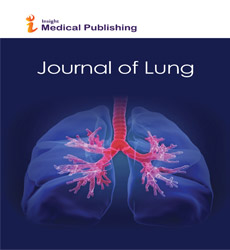As patients recover from an exacerbation-related hospital stay, the proportion of acute cardiological events in those with chronic obstructive pulmonary disease is assessed
Ourania S. Kotsiou
University of Thessaly, Greece
Received: June 07, 2022; Accepted: June 14, 2022; Published: June 21, 2022
Abstract
Aims and Objectives: Patients with chronic obstructive pulmonary disease (COPD) more frequently have cardiovascular comorbidity than healthy individuals. The impact of cardiovascular events on COPD patients during the recovery period after an exacerbation-related hospitalization remains poorly studied. This study aimed to evaluate the prevalence of acute cardiac events in COPD patients during the recovery period after an exacerbation-related hospitalization through remote monitoring. Methods: ZENSOR devices (INTELESENS Ltd) and m-health system, a 24-hour recording system of three biosignals (electrocardiogram, heart and breath rates) were implemented for 21 days in COPD patients hospitalized in the Respiratory Medicine Department, University of Thessaly, Greece from September 2019 to February 2020. Results: 18 COPD patients participated in the study. 83% of them were male (mean age: 73±6 years). 39% of the patients had stage III/IV disease and received home oxygen therapy. 95% had 3±1 comorbidities. 28% of patients had chronic coronary heart disease and 22% had chronic atrial fibrillation. 9072 recording hours were analyzed. Regardless of the COPD stage, half of the patients, developed first-diagnosed arrhythmological events that required therapeutic intervention. 11% of patients had persistent episodes of ventricular trigeminy, 11% presented a third-degree atrioventricular block, 27% had persistent bradycardia, and 5% had acute atrial fibrillation. 11% and 44% of patients experienced episodes of supraventricular tachycardia and premature ventricular contractions during sleep, respectively. 89% of the participants reported that they were satisfied with the use of the device. Conclusions: Zensor device effectively diagnose arrhythmological events that required medical intervention in patients with COPD during the recovery period after an exacerbation-related hospitalization.
Open Access Journals
- Aquaculture & Veterinary Science
- Chemistry & Chemical Sciences
- Clinical Sciences
- Engineering
- General Science
- Genetics & Molecular Biology
- Health Care & Nursing
- Immunology & Microbiology
- Materials Science
- Mathematics & Physics
- Medical Sciences
- Neurology & Psychiatry
- Oncology & Cancer Science
- Pharmaceutical Sciences
